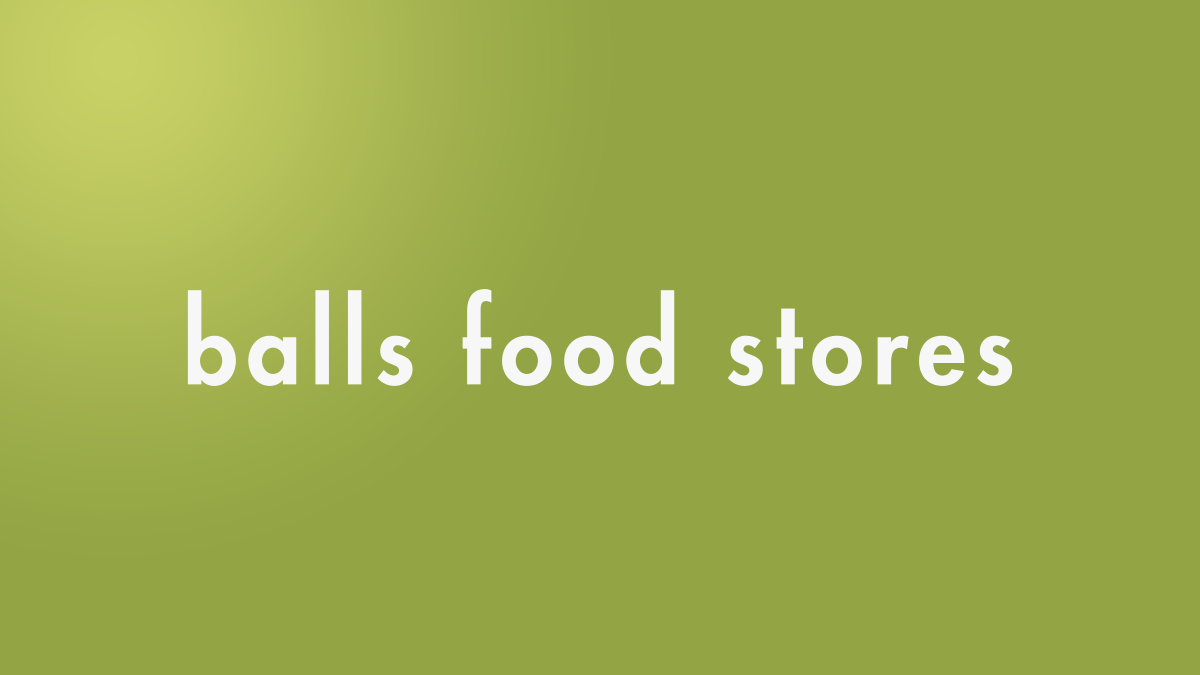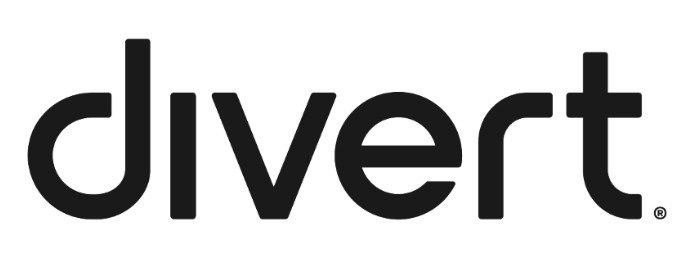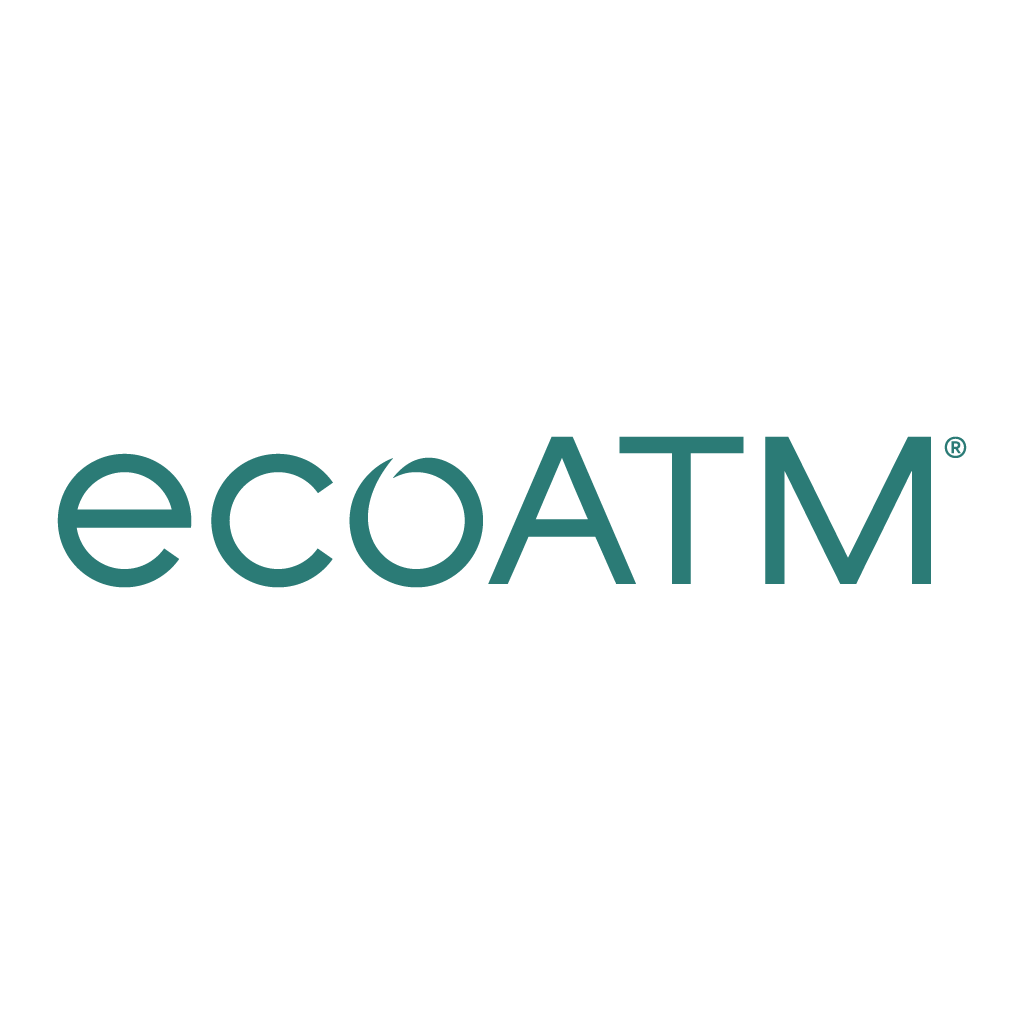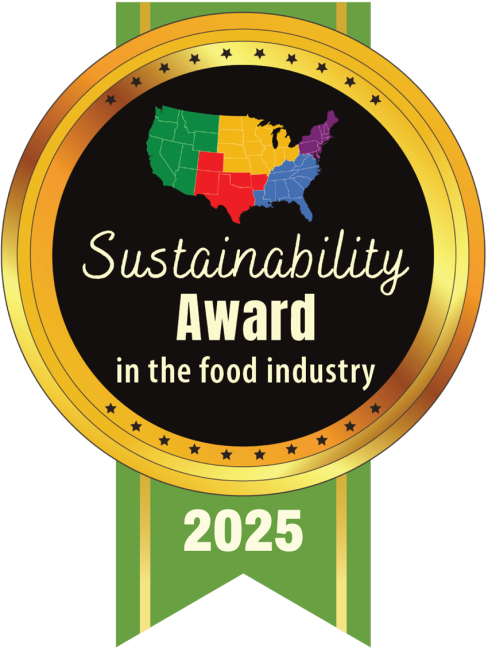The Sustainability in the Food Industry Award, presented by The Shelby Report, honors trailblazers reducing environmental impact, supporting communities, and innovating across the food supply chain. This year, we’re spotlighting nominees in four key categories: Retailer Initiatives (e.g., energy-efficient stores and waste reduction), Vendor & Supply Chain Innovations (e.g., carbon-neutral logistics), Sustainable Workforce (e.g., employee training for green practices), and Collaborative Impact & Industry Leadership (e.g., industry-wide coalitions). These forward-thinking companies and organizations are driving real change in how we grow, package, and deliver food – proving sustainability isn’t just a trend, it’s the future.
Discover this years innovators leading the charge in food industry sustainability – from farm to table.
2025 Sustainability Award Winners
-
 2025 Sustainability in the Food Industry
2025 Sustainability in the Food IndustryAhold Delhaize USA
Salisbury, North Carolina, Ahold Delhaize USA
Read MoreAhold Delhaize USA aims to build a more sustainable food system through collaboration, innovation and scale.
Recognizing that the industry’s biggest environmental challenges cannot be solved by one company alone, ADUSA has joined with supplier partners Kellanova, General Mills and Campbell’s in efforts to reduce Scope 3 emissions, advance regenerative agriculture and drive positive change from farm to shelf.
Partnership spotlight:
With Kellanova, ADUSA is working alongside Bartlett to create a farm-to-shelf wheat sourcing program that strengthens supply chain resilience while supporting farmers adopting practices that improve soil health and conserve resources.
The pilot demonstrates how retailers and suppliers can align purchasing with sustainability outcomes to benefit people and the planet. It starts at the farm, implementing conservation practices to improve soil health, which improves water quality and helps reduce emissions, then continues through milling, manufacturing and ends on ADUSA brand shelves.
Through its collaboration with General Mills, ADUSA is supporting farmers in the adoption of regenerative agriculture in key sourcing regions. This partnership accelerates farming practices to reduce emissions, improve water stewardship and enhance biodiversity – safeguarding the food system’s viability while advancing shared climate goals.
In partnership with The Campbell’s Company, ADUSA is supporting potato farms to implement regenerative farming techniques to create more resilient agricultural systems and reduce emissions through soil health practices. The initiative covers 1,000 acres, corresponding with the approximate number of acres used annually to grow potatoes for Campbell’s potato chip and soup products sold in ADUSA brand stores.
Driving collaborative impact:
While each partnership is distinct, together they represent a bold new model for retailer-supplier collaboration. By connecting expertise, investment and scale, ADUSA and its partners are building momentum for systemic change to drive reduced environmental impact, strengthen food security and build a more resilient supply chain.
Although measurable results are in early stages, the anticipated impact is significant: improved soil health, reduced emissions, enhanced biodiversity and stronger farmer livelihoods across thousands of acres of U.S. farmland.
Equally important, these initiatives set an example for how retailers and suppliers can work together to advance sustainability at scale, providing a road map for the industry. ADUSA has seen firsthand that industry collaboration can unlock impact that no single company could achieve alone.
Additionally, suppliers are essential partners in our sustainability journey across ADUSA local brands. Through these efforts, ADUSA demonstrates leadership and reaffirms its commitment to healthier people and planet.
-
 2025 Sustainability in the Food Industry
2025 Sustainability in the Food IndustryBalls Food Stores
Kansas City, Kansas, Balls Food Stores
Read MoreFor more than three decades, Balls Food Stores has demonstrated an unwavering commitment to reducing food waste and fighting hunger through its longstanding partnership with Harvesters – The Community Food Network. Financial records dating back to 1992 show a consistent history of collaboration, though the partnership began even earlier, with additional donation records held in storage.
BFS supports Harvesters through two key programs. The first is the Food Barrel Program, in which barrels are placed in all stores for guest donations. To make giving even easier, BFS pioneered the idea of a pre-filled grocery sack available for purchase at $10. This innovative approach has since been adopted by Harvesters with other retailers, multiplying its impact across the region.
The second initiative is the Grocery Store Recovery Program, where surplus food from the BFS central warehouse is donated to Harvesters, ensuring that products unsuitable for store shelves are redirected to families in need rather than wasted.
This enduring partnership has yielded profound results. According to Harvesters, since 1992 BFS has donated more than 3.7 million meals, with the true total even greater. In recognition of this legacy, Harvesters recently honored BFS as a founding member of its Million Meals Club through the Hunger Action Partner Program, celebrating organizations that have donated at least one million meals. On Sept. 18, Harvesters hosted a reception to celebrate BFS’s achievement and long-term leadership in the fight against hunger.
Beyond its work with Harvesters, BFS also supports other community food initiatives. In 2024, BFS contributed nearly 500,000 meals to the Church of the Resurrection’s food pantry, further extending its mission of nourishing communities. Through innovation, influence and decades of dedication, Balls Food Stores has transformed food recovery into a powerful tool for sustainability and community care, standing as a model of how retailers can make a measurable difference in reducing waste and fighting hunger.
-
 2025 Sustainability in the Food Industry
2025 Sustainability in the Food IndustryBargreen Coffee Co.
Everett, Washington, Bargreen Coffee Co.
Read MoreBargreen Coffee has been roasting coffee in the same building since 1915. Most of its equipment is 70 years old, with some even older. The company is on four floors because all the old roasting plants were built to use gravity feed to move the coffee, thus saving on energy.
Bargreen uses mostly used boxes that it either gets back from customers or gets from neighbors and friends. Its heating plant boiler system is mostly original, so it has saved energy for 110 years by not replacing it.
What Bargreen Coffee Company does is not change its equipment or systems if they still are effective. The truth is sustainability was much more of a focus 110 years ago, because saving money was a necessity and equipment and systems were not complicated.
-
 2025 Sustainability in the Food Industry
2025 Sustainability in the Food IndustryBriannas Fine Salad Dressing
Brenham, Texas, Briannas
Read MoreBriannas Fine Salad Dressing is committed to doing its part to protect the planet. The company increased sustainability efforts by sourcing eco-friendly packaging that can be fully recycled, so shoppers can feel good about what happens to their bottles after the final drop of dressing is gone. All of Briannas’ packaging is recyclable.
In addition to the environmental factors, feedback from customers also informed the company’s shift in packaging. These include improved tamper evidence andbottle security, energy efficiency and easy-to-clean labels that won’t stain. These ensure that the packaging on every bottle of Briannas salad dressing maintains the quality that customers have come to expect.
The packaging is made of polyethylene terephthalate, commonly known as PET, a fully recyclable plastic material. Each component of Briannas’ packaging can be recycled, from the glass bottle and label to the cap and cap liner. Once emptied, a bottle of dressing can be rinsed and separated by components.
In addition, the company adopted a new method of shipping finished product to retailers and distributors that reduced cardboard use by 400 tons per year. That’s equivalent to the weight of more than 266,000 bottles of Briannas salad dressing.
Briannas has accomplished much in its history, from winning more than 35 industry taste awards to launching a new line of premium organic and avocado oil-based dressings. But the efforts to reduce its environmental footprint and increase sustainability may be its most exciting mission yet.
-
 2025 Sustainability in the Food Industry
2025 Sustainability in the Food IndustryC&S Wholesale Grocers
Keene, New Hampshire, C&S Wholesale Grocers
Read MoreIn 2020, C&S formalized its sustainability mission and established a Sustainability Committee focused on creating meaningful actions and tracking progress. C&S reviewed every aspect of its operations, from warehouses and grocery stores to offices and created a strategic plan, The Green Path Forward, which focuses on preserving the environment, working to eliminate waste and lessening the company’s carbon footprint.
Preserving the environment:
For 17-plus years, C&S has partnered with The Conservation Fund, which operates in all 50 states to protect land and advance economic opportunities. C&S’s support of TCF protected more than 9 million acres across the U.S.In 2024, C&S helped build a 100-acre shaded fuel break along Fish Rock Road to reduce fire severity and protect surrounding communities. C&S’s support of TCF’s Working Farms Fund program helps secure at-risk farmland and provides opportunities for next-generation farmers to build a healthier food system.
C&S’s partnership with TCF’s Freshwater Institute addresses seafood sustainability challenges and donated salmon for 10,000 meals.
Eliminating waste:
C&S has supported Feeding America since 1994 and together they eliminated food waste while providing millions of meals. In 2024, C&S donated more than 4,340 tons of food to community resources and 25 Feeding America food banks.C&S has worked to keep waste out of landfills as follows – 55 tons of warehouse paper; 35,210 tons of cardboard; 1,095 tons of plastic shrink wrap; 10,853 tons of wooden pallets; and about 9 tons of eWaste.
Lessening carbon footprint:
C&S continues its perpetual asset replacement strategy and maintains the optimal average equipment age. The company’s tractor fleet, 100 percent replaced with new models, continues a partnership with Volvo and finished the year with an average age of 3.2 years. Smart profiles are installed in 100 percent of C&S’s refrigerated trailer fleet, reaching the goal of 100 percent by 2025.C&S continues to integrate Advanced Charging Technologies, a leader in forklift battery and charging technologies, at several warehouses. In 2024, it added 111 Quantum chargers in the network.
In sustainable refrigeration, C&S has nearly 100 percent of warehouses using hydrous ammonia as a natural refrigerant. C&S participates in demand response programs with Enel X, the largest provider of demand response solutions.
-
 2025 Sustainability in the Food Industry
2025 Sustainability in the Food IndustryCascades Plastics
Warrenton, Missouri, Cascades Plastics
Read MoreCascades is a leading force in sustainable packaging, offering innovative, eco-designed solutions driven by strong expertise, a reliable supply chain and a commitment to a circular economy.
Cascades\' sustainability action plan (2020-25) highlights that it will have 100 percent of its packaging solutions be recyclable, compostable or reusable to support circularity and responsible end-of-life by 2030. As a result, Cascades’ team is always working to create alternatives to hard-to-recycle packaging products.
For instance, Cascades introduced the first recyclable tray with rolled edge technology made from 100 percent recycled PET and is prequalified as widely recyclable by How2Recycle in select communities in the United States. This innovation, in addition to offering the performance expected of a PET tray, is offered in multiple sizes, different grades and in a clear finish.
The environmental benefits of this tray have been demonstrated through its successful integration by Canada’s leading grocery retailer. Since making the transition from all EPS protein packaging for its private label to 100 percent rPET trays, this leader has implemented more than 150,000,000 trays made from 100 percent recycled PET.
Compared to virgin PET trays, this shift has led to an 80 percent reduction in greenhouse gas emissions, which is equivalent to 15,983 cars driving the 5,554-kilometer distance between New York and Los Angeles and to a 90 percent reduction in non-renewable resources extraction (Life Cycle Assessments of Cascades trays, Groupe AGECO, Montreal, Eco-calculator version July 2024).
Similarly, compared to virgin EPS trays, this shift reduces the quantity of greenhouse gas emissions by 46 percent, which is equivalent to 3,288 cars driving that same distance and decreases the extraction of non-renewable resources by 73 percent.
Additionally, consumer surveys have shown that 66 percent of users are likely to recycle a rigid PET plastic tray, while just 38 percent would do so with a foam tray, and 63 percent of consumers consider the phrase “made from 100 percent recycled content” gives a better impression of eco-designed packaging (Cascades Web Survey, 807 North American respondents, April 14-27, 2025).
This highlights how Cascades’ innovation is aligned with the sustainability goals of the company, its customers and end-users. The positive environmental impact of these trays is significant, and this case demonstrates Cascades’ sustainable initiatives through low-impact packaging.
-
 2025 Sustainability in the Food Industry
2025 Sustainability in the Food IndustryDivert Inc.
Concord, Massachusetts, Divert Inc.
Read MoreEach year, a significant amount of wasted food ends up in landfills where it produces dangerous methane emissions as it degrades. The EPA estimates that in 2019, 66 million tons of wasted food came from food retail, food service and residential sectors, with about 60 percent of that wasted food ending up in landfills.
Divert, a company on a mission to prevent food from being wasted, is working to address this through a three-pronged solution: Prevent, provide, power – preventing waste at the retail-store level, donating what is still edible to feed people in need and transforming the rest into beneficial products, such as renewable energy and soil amendment.
The first part of Divert’s solution leverages its proprietary IoT platform to give customers, like retail stores, actionable insights into the food that’s most frequently wasted and why. This information allows them to better manage inventory and make more informed ordering decisions.
Next, Divert works with retail partners to facilitate increased food donations of unsold food. Food that is still safe to consume is donated to local food banks, while the food that is no longer edible is taken to Divert’s Integrated Diversion & Energy Facilities to process it into renewable energy and soil amendment through anaerobic digestion.
The process starts by depackaging, gently separating the unsold food from its packaging – a proprietary process that ensures no microplastics are created. Then the food is turned into a liquid slurry and fed to a digester where nutrients are extracted and energy is captured.
Finally, the energy that is created from the process is transformed into carbon negative renewable natural gas to power local communities and businesses, while the nutrients that are extracted from the process are turned into soil amendment.
The value of this solution can be seen through Divert’s partnership with Fred Meyer, a subsidiary of The Kroger Co. Fred Meyer recently expanded its organics recycling program with Divert to support the company’s entire footprint, which includes 105 stores in Oregon and Washington.
In 2024, Divert and Fred Meyer prevented more than 5.4 million pounds of unsold food products from reaching landfills.
Looking forward, Divert plans to scale its impact through the expansion of its Integrated Diversion & Energy Facilities’ footprint to be within 100 miles of 80 percent of the U.S. population. New facilities in Washington, North Carolina and Ohio are under development.
-
 2025 Sustainability in the Food Industry
2025 Sustainability in the Food IndustryDole
Charlotte, North Carolina, Dole
Read MoreA Honduras-based project between Dole and Zamorano University focused on tropical agriculture was designed to develop an integral and sustainable water management in the Uchapa–Pimienta micro-watershed, strengthening local capacities and reducing climate vulnerability.
The area is rural and close to Dole banana farms. The project covers key areas of water stewardship at landscape level to reach maximum impact and is closely aligned with the needs of local and indigenous communities, schools and local stakeholders.
The project has targeted and achieved significant progress in three key areas – environmental education, water management as an ecosystem resource and sustainable production systems through a range of initiatives.
For education, youth participation was promoted with the involvement of 551 high school students in environmental protection and restoration activities. In addition, 45 children were trained on issues related to climate change and natural resource management. About 480 m² of the Olanchito municipal nursery was rebuilt, with the capacity to produce 50,000 plants annually. Further, school gardens were implemented, engaging 65 children and 38 young people under the Learning by Doing methodology, consolidating themselves as an innovative and transformative tool for hands-on environmental education.
With respect to ecosystem water management, the project achieved strong results. An official declaration was obtained for 569 hectares of Quebrada Andaluz micro-basin as a forest protection zone. About 29 hectares were restored with diverse forest species and an additional 672 hectares were secured under forest protection and restoration.
In addition, three community fire protection brigades were equipped and two forest protection plans (2024–25) were implemented, reducing wildfires to less than 5 percent of the total area – evidence of the effectiveness of inter-institutional coordination promoted by the Forest Protection Board.
In addition, 230 families benefited from improvements in the water distribution system by getting their homes connected to the water infrastructure.
Finally, within the sustainable production systems component, environmentally friendly production models were promoted. Two thousand fruit trees were established on farmers’ plots and 40 production units were enriched through agroforestry systems of fruit species. Support was also provided to two beekeeping organizations that included 17 women and 33 men. Some 30,000 ornamental, fruit and timber plants were produced in the nursery.
-
 2025 Sustainability in the Food Industry
2025 Sustainability in the Food IndustryDutch Cheese Makers – Artikaas
Garden City, New York, Dutch Cheese Makers
Read MoreArtikaas, a six-generation Dutch artisanal cheese brand, lives up to its name, “The Art of Cheese,” by embedding sustainability into every part of its operations.
Animal welfare and farm-level stewardship
Artikaas partners with more than 800 local dairy farms in the Netherlands that are committed to eco-friendly agriculture.These farms:
• Provide cows with abundant pasture time (more than six hours daily in summer) and nutritious diets of grass and corn silage.
• Maintain modern, well-ventilated barns with natural light, fresh air and massage brush stations to enhance cow comfort.
• Use advanced animal-health tracking tools like “KoeKompas” (CowCompass). Many cows choose their own milking times via robotic systems. More than 70 percent of farms use this technology, with adoption steadily growing.These practices promote animal well-being, improve milk quality and support long-term farm resilience through veterinary guidance and biodiversity-linked farmer incentives.
Renewable energy and carbon reduction
Artikaas is committed to clean energy. Key efforts include:
• Nearly 6,000 solar panels at the Heerenveen factory, which power production and send excess energy back to the grid. This supports the electricity needs of around 300 households per year.
• Use of heat pumps to eliminate natural gas consumption. The factory also captures and reuses 92 percent of its process heat, significantly lowering emissions. Water conservations and zero‑waste Water use is carefully managed:
• Up to 75 percent of the water used in cheesemaking is recycled and reused within the facility.
• Whey, which is produced in large quantities, is sanitized and repurposed into animal feed, protein products or cleaning agents. This keeps it out of the waste stream.These strategies reflect Artikaas’s zero-waste philosophy, ensuring that every part of the milk is used efficiently.
Global impact with local roots
Through responsible sourcing, renewable energy and waste-conscious practices, Artikaas lowers its environmental footprint while strengthening rural economies. The brand’s cheeses, such as Vintage Lot 18 (18-month Gouda) and Holy Sheep (sheep-milk Gouda), received multiple honors at the 2024 World Cheese Awards and World Championship Cheese Contest.
By combining ethical farming, clean production and resource efficiency, Artikaas shows how traditional cheesemaking can thrive sustainably and lead the way forward.
-
 2025 Sustainability in the Food Industry
2025 Sustainability in the Food IndustryecoATM
San Diego, California, ecoATM
Read MoreThe Shelby Report recognizes ecoATM for its remarkable contribution to environmental sustainability through innovative e-waste solutions. Since its founding, ecoATM has emerged as a leader in addressing one of our most pressing environmental challenges - electronic waste.
Through its network of automated kiosks, ecoATM has created an accessible, secure, and convenient solution that transforms how consumers dispose of used electronics. By offering instant cash payments for used cell phones and devices, it has successfully incentivized responsible recycling while giving electronics a second life.
Environmental Impact & Achievement
ecoATM's commitment to reducing hazardous e-waste - containing toxic materials such as arsenic, lead, cadmium, and mercury - has yielded extraordinary results. In 2024, it reached a significant milestone of collecting over 50 million devices through its kiosks, demonstrating measurable environmental benefits:
- Prevention of over 25 million pounds of e-waste from entering landfills
- Protection of land and water sources from thousands of toxic materials
- Reduction equivalent to 2 million metric tons of CO2 emissions
- Conservation impact equal to saving 20 billion gallons of water
Commitment to ExcellenceecoATM exemplifies best-in-class environmental stewardship through its ISO 45001 and ISO 14001:2015 certified environmental, health, and safety management system. Its "reuse, recover, dispose" hierarchy demonstrates a thoughtful approach to responsible electronics management, while its commitment to continuous improvement and regulatory compliance sets an industry standard.

Presented by The Shelby-Griffin Report
The Shelby Report is the grocery industry’s leading news source, serving the food supply chain since 1967. With decades of in-depth journalism and strategic partnerships with NGA and FMI, we are dedicated to educating and informing the industry. We are proud to present this award to honor sustainability leaders.
